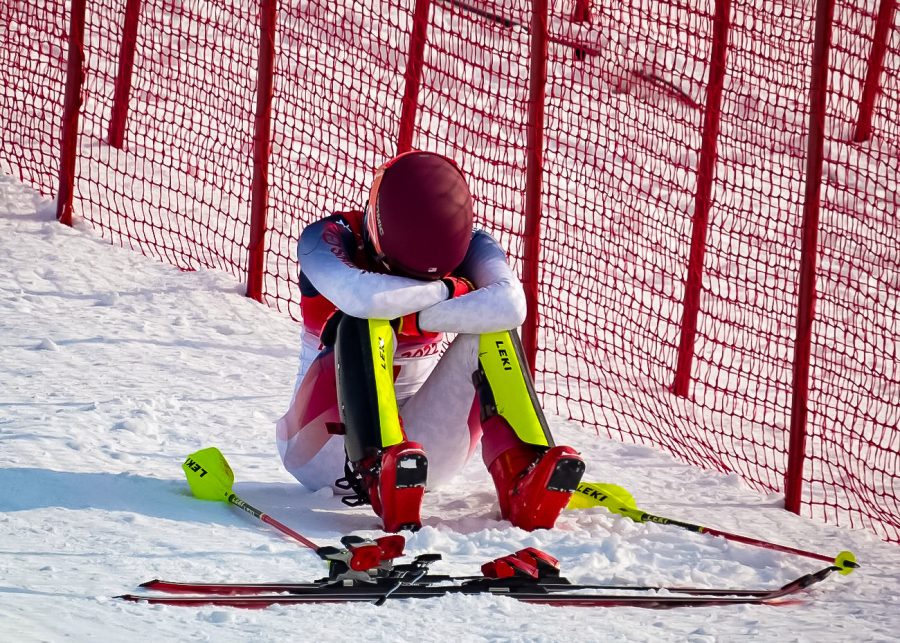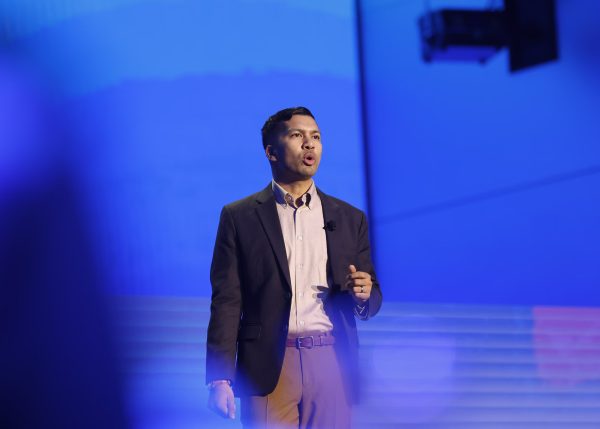Olympic Athletes Open Up About Mental Health
One of the most memorable images from the Beijing 2022 Winter Olympic Games is the one of two-time Olympic champion Mikaela Shiffrin, sitting on the ground, head in between her knees, with a look of complete devastation.
Shiffrin, the favorite for combined alpine skiing, did not win medals at this year’s Winter Olympics; she mentions that her experience was impacted by the struggles she faced going into the Games, highlighting her battle with mental health.
She is, however, not the first among professional or Olympic athletes to voice concerns about mental health. In the past year, both Simone Biles and Naomi Osaka, two of the greatest athletes in history, withdrew from competition citing a declining mental health state.
Throughout the sports community, the impact of mental health on performance has become a prominent point of discussion and will most likely continue to grow as more athletes decide to speak out.
Within the 2022 Games, Shiffrin was not the only athlete who publicly shared their struggles with mental health. Shaun White, an accomplished American snowboarder and skateboarder, ended his Olympic career this February. The three-time Olympic gold medalist stated in an interview that when he was younger, he viewed any vulnerability or openness surrounding mental health as a “weakness.” Upon hearing about famed-swimmer and 23-time Olympic gold medalist Michael Phelps’s struggles, White stated that his mindset has shifted. He realized that “it takes so much courage to actually talk about it. It’s not a weakness.”
Moving forward in sports, it is likely that more athletes will continue to speak out about their struggles with mental health and the impact it has had on performance. Many believe this is beneficial to younger athletes in particular.
Girls’ basketball team captain Emelia O’Gilvie (I) says, “these pro athletes talking about this makes it easier for me in the future as I continue to play sports to feel comfortable talking about mental health and prioritizing it because these athletes are some of my role models.”
A focus on mental health, or healthy mentality in general, could be beneficial for athletes of all ages and skill levels. It points to a healthy balance between pushing oneself in sports but also allowing room for mistakes, which is applicable to growing as a person and to simply being human.
In order to perform at their best, one must not only be in the best physical shape possible, but also understand how to use one’s body in the right way. When it comes to performance, a healthy mind and mentality are crucial.
Professional athletes advocating for this subject provides not only role models for all other athletes, but also encourages more conversations surrounding mental health among young athletes and coaches.
BLS lacrosse and basketball player Ruby Donovan (III) adds, “I think it’s really important for athletes at the celebrity status to talk about [mental health]. It helps destigmatize it, but it also helps people feel less alone.”
Although these are struggles everyone faces, not just athletes, hearing influential people with large platforms speak on mental health is encouraging. This unites people together and helps them understand each other on a more personal level. Mental health is a universal struggle; it is essential to highlight how performance is mentally approached in order to continue a love for the game.
John Bijoy Hankwitz (I), a baseball player at BLS, explains, “I hope it encourages more youth coaches especially to look out for their players. There’s no need for kids to be failing mentally when they are playing a sport that they love.”
Youth sports can be an important factor of a child’s life, as they often shape who they become and how they view the world. Speaking on this topic with such large platforms, athletes like Mikaela Shiffrin and Shaun White work to destigmatize mental health in sports and emphasize the need to further understand how sports can continue to improve. With an emphasis on mental health throughout sports, athletes can continue to love what they do and better understand themselves.






